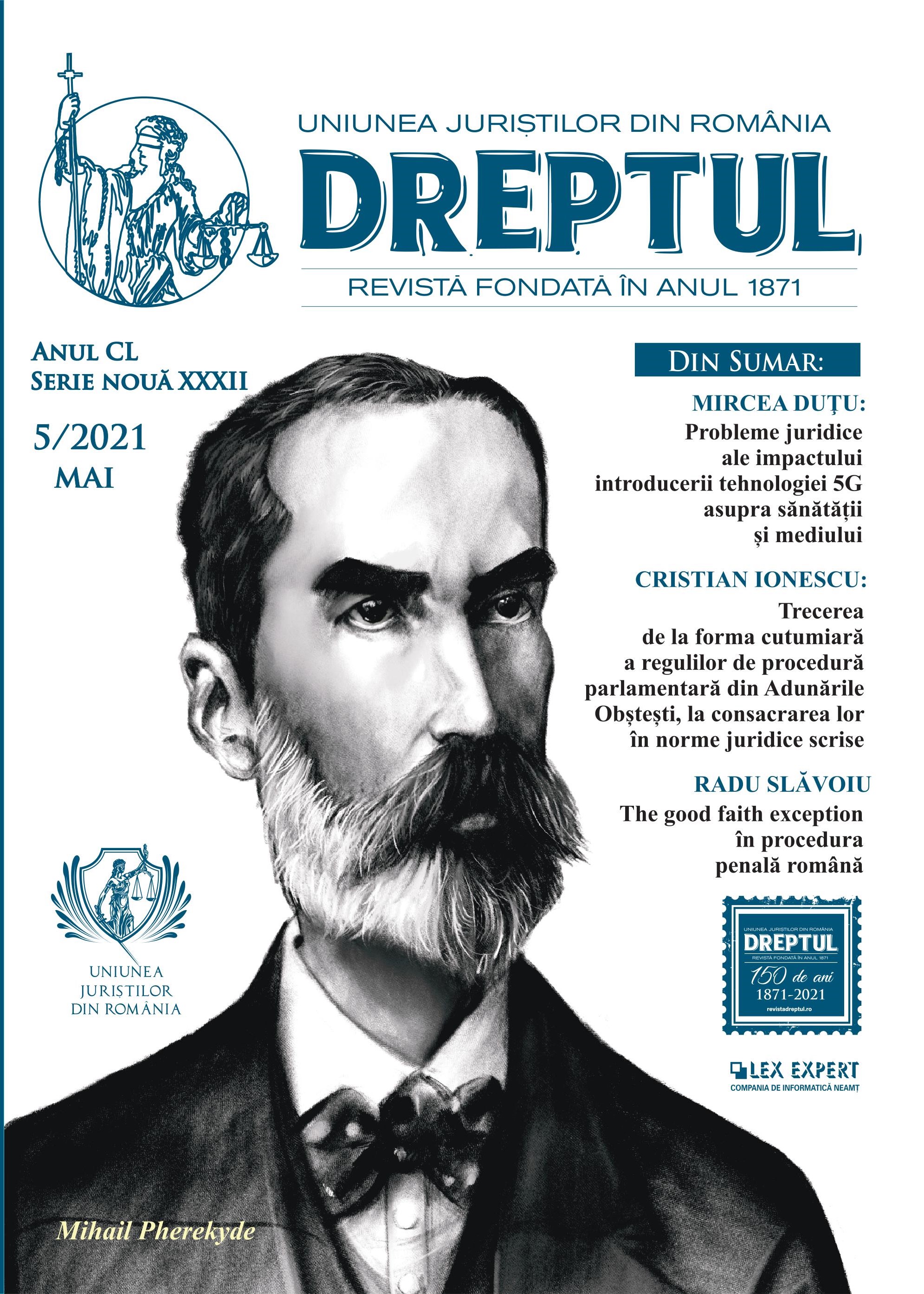Principiul loialității și constituția invizibilă a României
The principle of loyalty and the invisible constitution of Romania
Author(s): Anthony Matthew Dima MurphySubject(s): Constitutional Law
Published by: Uniunea Juriștilor din România
Keywords: separation and balance of powers theory; constitutional loyalty; constitutional normative order; constitutional behaviour and practices; the Constitutional Court of Romania; invisible constitution;
Summary/Abstract: This doctoral research investigates the case law development of the principle of loyalty within the framework of the invisible constitution theory. Uncodified counterpart of written constitutional rules, the invisible constitution belongs to a broader understanding of the concept, specifically the constitution in its material sense. Contemporary examples are found within the British constitutional order (e.g. constitutional conventions and case law), the French bloc de constitutionnalité (i.e. complementary unwritten rules) and the case law of the Hungarian Constitutional Court (i.e. the Sólyom model). Assuming a national invisible constitution exists, the paper aims to demonstrate that the principle of loyal cooperation belongs to such an invisible dimension of the Romanian constitutional order.Methodologically, the research debuts with a summary presentation of the general theory of the invisible constitution, followed by an analysis of the case law creation of the principle of loyalty in Romania. Essentially, said principle derived by means of teleological interpretation from the larger, separation and balance of power theory. Foreshadowed by timid references to „constitutional behaviour”, the principle of constitutional loyalty belongs to a „constitutional normative order” which goes beyond the letter of the Romanian Constitution. Establishing an analogy between said order and the material understanding of the constitution, the author asserts that „constitutional behaviour and practices” reflect precisely the invisible constitution. Contingent upon the means chosen to establish such practices, the source of the invisible constitution can be either customary (in case of cooperation between powers) or case law (in case of conflict between them). The author concludes that the invisible constitution theory served – despite not being referred to as such – as basis for the entire case law construction of the principle of constitutional loyalty, as a sine qua non requirement for recognising such a value-principle.
Journal: Revista „Dreptul”
- Issue Year: 2021
- Issue No: 05
- Page Range: 114-127
- Page Count: 14
- Language: Romanian
- Content File-PDF

